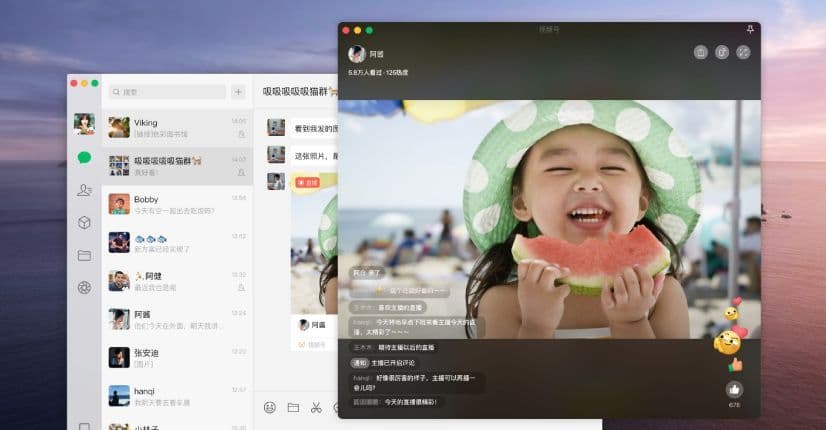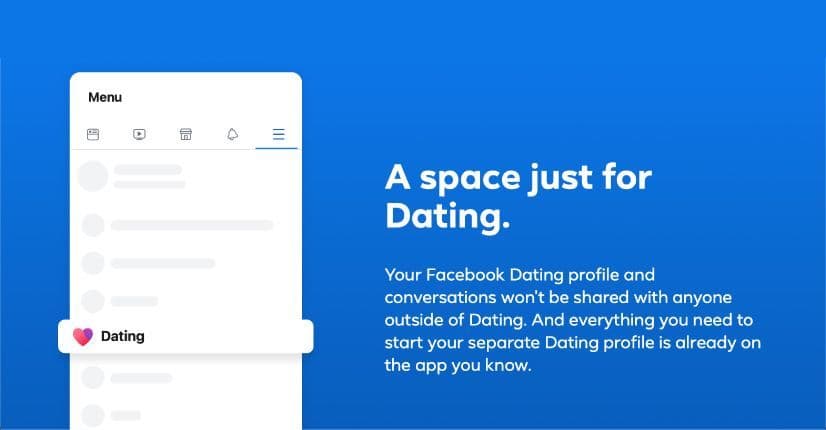super apps
+ 3 more ...
How Asia's Super Apps Are Transforming Technology
02 Dec 2021
by Lotte, Digital Content Specialist
02 Dec 2021
by Lotte, Digital Content Specialist
super apps
east asia
alipay
China
How Asia's Super Apps Are Transforming Technology
Table of contents
Contact us
We will get back to you in the next 48 hours.

Asia’s super apps are booming and are already changing technology as we know it. Will we see super apps pop up in the West any time soon?
The continuous flow of newly emerging technologies has made our lives easier and more efficient than ever before. Technology has become ubiquitous and you can find new digital innovations in every corner of the world. While the main goal of technology is generally aimed to make our lives more comfortable, there are global differences in how this can be achieved. As a result, innovation is driven by a country’s local and regional consumer behaviour. An example of this is the “super app”, which in recent years has become a standard of technological innovation in Asia. In this blog, we dive a bit deeper into these super apps to find out how they are transforming technology in Asia, and even on a global scale.
What is this so-called super app?
So, what are we talking about when speaking of so-called “super apps”? The term was first coined by Blackberry founder Mike Lazaridis in 2010 when mobile applications were just making their entrance into our smartphones and daily lives. More recently, they have gained immense popularity in countries such as China, Korea and other Asia-Pacific countries. Mike explained the purpose of these super apps as the following:
“A closed ecosystem of many apps that people would use every day because they offer such a seamless, integrated, contextualized and efficient experience.” - Mike Lazaridis, Founder of Blackberry
In other words, a super app is an application that provides a complete package of services, which are usually found in separate applications. Think of, for example, ride-hailing apps like Uber, food ordering apps like Takeaway, and social apps like Twitter, Instagram and Facebook. A super app integrates all of these functionalities into one single application, consisting of mini-programs that connect users to a third-party service provider. In that sense, a super app works as a single portal to a wide variety of services. Examples of some of the largest super apps at the moment include China’s WeChat and AliPay, Paytm in India, Grab in Singapore and Malaysia, GoTo in Indonesia, Zalo in Vietnam, and Kakao in South Korea.
The birth of super apps
You might wonder why super apps have such a large following in Asian countries and have not caught on as much in the west. In the West, our smartphones are still packed with a wide variety of applications that all serve a different purpose, rather than one that does it all. This difference lies in the fact that the East hasn’t experienced the same process of digitization as the West did. The West was exposed to the first computers, the emergence of the internet, and the process of our cellular phones turning into smartphones. This led to incremental improvements and a myriad of technological innovations and solutions along the way.
In the East, this process didn’t just happen much later than in the West, it also skipped a few steps. Whereas the West had the time to grow alongside its technological advancements, the East largely jumped right into the digital age. Therefore, the Eastern market has a much more ‘mobile-first’ approach. This rapid digital transformation in such a large country as China resulted in the accelerated production of affordable smartphones. After all, the Chinese population had to transform along with the market, so it was crucial to make smartphones widely available and accessible. In order to do this cost-effectively and efficiently, Chinese smartphones generally don’t have much storage space, or at least not compared to the flagship products from popular brands such as iPhone or Samsung. This greatly limited the number of apps users could install on their phones. Hence, super apps formed a good solution.
The story of WeChat
WeChat (Weixin in Mandarin), owned by Chinese tech giant Tencent, is probably the most well-known example of an Asian super app. WeChat is rapidly growing into one of the most popular multi-purpose platforms in the world, and not just in China. WeChat was launched in 2011 and currently has about 1.25 billion active monthly users worldwide. To put things in perspective, China has a population of approximately 1.4 billion people at the time of writing. So, for every 100 people, there are 80 monthly active users. WeChat currently possesses a number 6 position in the ranking of most popular apps worldwide. This is very impressive considering the fact that the top 5 is used on a worldwide scale, whereas WeChat is mostly used in China with much lower popularity in the rest of the world.

While WeChat was initially introduced as a communication app, like WhatsApp, Signal, and Telegram, it’s now grown out to something much more than that. It has a lot more to offer than unique emoticons, chat functionalities, and personalized profiles. You can use WeChat to schedule a catch-up with a friend, pre-order meals from your favorite restaurant, book a taxi, get directions, pay for your meal, send money to a friend, check movie timings and book tickets, and even buy that coat you've been eyeing for weeks. All these things can be accomplished without having to exit the application.
The Great Firewall
Compared to the West, China has a lot of restrictions and censorship when it comes to online communication. In the western world, we have a lot of data protection regulations and privacy laws that protect us from the prying eyes of, among others, our government. In China, while data protection laws exist, the role of the government is quite different. Well-protected apps simply aren’t allowed by the Chinese government because they wouldn’t be able to keep an eye on their users and impose their strict censorship policies. This so-called ‘Great Firewall’ blocks many western apps from being used by Chinese citizens. Instead, China created its own ‘clone apps’, which are identical to the apps we know, but created and regulated by the Chinese government. In China, people use Baidu instead of Google, where we have YouTube, China has Youku, and Twitter’s counterpart is Sina Weibo.
The future of super apps?
Generally, when we refer to super apps, we refer to the East and forget that full-package apps like WeChat are slowly making their way into all corners of the world. Super apps are entering the western market, albeit slowly. This is because the West has much more privacy regulations that need to be taken into account when creating multi-service apps. Every interaction between the app and third-party services needs to be controlled, regulated, and most importantly secured. Seeing the popularity of super apps in Asia, and the western need for increased efficiency and ease, it’s only a matter of time before super apps become the norm in smartphone use.
You can already see the move towards super apps in applications like Facebook, which introduced an online dating feature not too long ago, or Uber, which you can now use for ride-hailing and ordering food. Instead of newly developed super apps, the West is probably more likely to develop an increasing number of services in already existing apps, as these apps are already built with all privacy regulations in place. Over the next few years, we believe the world's largest social media firms will transform into super apps, serving as gatekeepers to a broader range of online activities. While these social networks, like Facebook, Snapchat, and TikTok, began as a simple way to stay in touch with friends and family and be entertained at the same time, they will become increasingly significant tools for people to shop, bank, and entertain themselves. Even while they're still generally thought of as social networks, several of these US-based companies are already resembling super apps.

In other Asian countries, super apps are already making their entrance. South Korea has its own ever-growing super-platform corporation ‘Kakao’, consisting of a large number of applications with different functionalities: KakaoTalk, KakaoTaxi, KakaoMap, KakaoMusic, KakaoStory, KakaoBus, and many more. While Kakao still consists of separated applications for every service, it’s only a matter of time until these services will merge into one platform. In Singapore, Thailand, Malaysia, Indonesia, and other Southeast Asian countries, the tech company ‘Grab’ is rapidly expanding in popularity. The app started off as a ride-hailing app but quickly added food, grocery, and package delivery services to their app. Grab is already seen as one of the most promising super apps in Southeast Asia.
Need a hand?
As an international app development partner, we’ve helped clients from all over the world with the development of their digital solutions. As experts in the field, we understand that every client is unique, and every solution needs to perfectly fit that uniqueness. No matter the purpose or complexity of your ideal solution, we are your digital partner from start to finish and beyond.
Are you ready to disrupt your market with your very own application? Get in touch with us on our social channels or fill in the contact form on our site for a free consultation.

Asia’s super apps are booming and are already changing technology as we know it. Will we see super apps pop up in the West any time soon?
The continuous flow of newly emerging technologies has made our lives easier and more efficient than ever before. Technology has become ubiquitous and you can find new digital innovations in every corner of the world. While the main goal of technology is generally aimed to make our lives more comfortable, there are global differences in how this can be achieved. As a result, innovation is driven by a country’s local and regional consumer behaviour. An example of this is the “super app”, which in recent years has become a standard of technological innovation in Asia. In this blog, we dive a bit deeper into these super apps to find out how they are transforming technology in Asia, and even on a global scale.
What is this so-called super app?
So, what are we talking about when speaking of so-called “super apps”? The term was first coined by Blackberry founder Mike Lazaridis in 2010 when mobile applications were just making their entrance into our smartphones and daily lives. More recently, they have gained immense popularity in countries such as China, Korea and other Asia-Pacific countries. Mike explained the purpose of these super apps as the following:
“A closed ecosystem of many apps that people would use every day because they offer such a seamless, integrated, contextualized and efficient experience.” - Mike Lazaridis, Founder of Blackberry
In other words, a super app is an application that provides a complete package of services, which are usually found in separate applications. Think of, for example, ride-hailing apps like Uber, food ordering apps like Takeaway, and social apps like Twitter, Instagram and Facebook. A super app integrates all of these functionalities into one single application, consisting of mini-programs that connect users to a third-party service provider. In that sense, a super app works as a single portal to a wide variety of services. Examples of some of the largest super apps at the moment include China’s WeChat and AliPay, Paytm in India, Grab in Singapore and Malaysia, GoTo in Indonesia, Zalo in Vietnam, and Kakao in South Korea.
The birth of super apps
You might wonder why super apps have such a large following in Asian countries and have not caught on as much in the west. In the West, our smartphones are still packed with a wide variety of applications that all serve a different purpose, rather than one that does it all. This difference lies in the fact that the East hasn’t experienced the same process of digitization as the West did. The West was exposed to the first computers, the emergence of the internet, and the process of our cellular phones turning into smartphones. This led to incremental improvements and a myriad of technological innovations and solutions along the way.
In the East, this process didn’t just happen much later than in the West, it also skipped a few steps. Whereas the West had the time to grow alongside its technological advancements, the East largely jumped right into the digital age. Therefore, the Eastern market has a much more ‘mobile-first’ approach. This rapid digital transformation in such a large country as China resulted in the accelerated production of affordable smartphones. After all, the Chinese population had to transform along with the market, so it was crucial to make smartphones widely available and accessible. In order to do this cost-effectively and efficiently, Chinese smartphones generally don’t have much storage space, or at least not compared to the flagship products from popular brands such as iPhone or Samsung. This greatly limited the number of apps users could install on their phones. Hence, super apps formed a good solution.
The story of WeChat
WeChat (Weixin in Mandarin), owned by Chinese tech giant Tencent, is probably the most well-known example of an Asian super app. WeChat is rapidly growing into one of the most popular multi-purpose platforms in the world, and not just in China. WeChat was launched in 2011 and currently has about 1.25 billion active monthly users worldwide. To put things in perspective, China has a population of approximately 1.4 billion people at the time of writing. So, for every 100 people, there are 80 monthly active users. WeChat currently possesses a number 6 position in the ranking of most popular apps worldwide. This is very impressive considering the fact that the top 5 is used on a worldwide scale, whereas WeChat is mostly used in China with much lower popularity in the rest of the world.

While WeChat was initially introduced as a communication app, like WhatsApp, Signal, and Telegram, it’s now grown out to something much more than that. It has a lot more to offer than unique emoticons, chat functionalities, and personalized profiles. You can use WeChat to schedule a catch-up with a friend, pre-order meals from your favorite restaurant, book a taxi, get directions, pay for your meal, send money to a friend, check movie timings and book tickets, and even buy that coat you've been eyeing for weeks. All these things can be accomplished without having to exit the application.
The Great Firewall
Compared to the West, China has a lot of restrictions and censorship when it comes to online communication. In the western world, we have a lot of data protection regulations and privacy laws that protect us from the prying eyes of, among others, our government. In China, while data protection laws exist, the role of the government is quite different. Well-protected apps simply aren’t allowed by the Chinese government because they wouldn’t be able to keep an eye on their users and impose their strict censorship policies. This so-called ‘Great Firewall’ blocks many western apps from being used by Chinese citizens. Instead, China created its own ‘clone apps’, which are identical to the apps we know, but created and regulated by the Chinese government. In China, people use Baidu instead of Google, where we have YouTube, China has Youku, and Twitter’s counterpart is Sina Weibo.
The future of super apps?
Generally, when we refer to super apps, we refer to the East and forget that full-package apps like WeChat are slowly making their way into all corners of the world. Super apps are entering the western market, albeit slowly. This is because the West has much more privacy regulations that need to be taken into account when creating multi-service apps. Every interaction between the app and third-party services needs to be controlled, regulated, and most importantly secured. Seeing the popularity of super apps in Asia, and the western need for increased efficiency and ease, it’s only a matter of time before super apps become the norm in smartphone use.
You can already see the move towards super apps in applications like Facebook, which introduced an online dating feature not too long ago, or Uber, which you can now use for ride-hailing and ordering food. Instead of newly developed super apps, the West is probably more likely to develop an increasing number of services in already existing apps, as these apps are already built with all privacy regulations in place. Over the next few years, we believe the world's largest social media firms will transform into super apps, serving as gatekeepers to a broader range of online activities. While these social networks, like Facebook, Snapchat, and TikTok, began as a simple way to stay in touch with friends and family and be entertained at the same time, they will become increasingly significant tools for people to shop, bank, and entertain themselves. Even while they're still generally thought of as social networks, several of these US-based companies are already resembling super apps.

In other Asian countries, super apps are already making their entrance. South Korea has its own ever-growing super-platform corporation ‘Kakao’, consisting of a large number of applications with different functionalities: KakaoTalk, KakaoTaxi, KakaoMap, KakaoMusic, KakaoStory, KakaoBus, and many more. While Kakao still consists of separated applications for every service, it’s only a matter of time until these services will merge into one platform. In Singapore, Thailand, Malaysia, Indonesia, and other Southeast Asian countries, the tech company ‘Grab’ is rapidly expanding in popularity. The app started off as a ride-hailing app but quickly added food, grocery, and package delivery services to their app. Grab is already seen as one of the most promising super apps in Southeast Asia.
Need a hand?
As an international app development partner, we’ve helped clients from all over the world with the development of their digital solutions. As experts in the field, we understand that every client is unique, and every solution needs to perfectly fit that uniqueness. No matter the purpose or complexity of your ideal solution, we are your digital partner from start to finish and beyond.
Are you ready to disrupt your market with your very own application? Get in touch with us on our social channels or fill in the contact form on our site for a free consultation.
FAQs

What is a super app?
What are examples of a super app?
Is Facebook a super app?
Will super apps come to the West?





